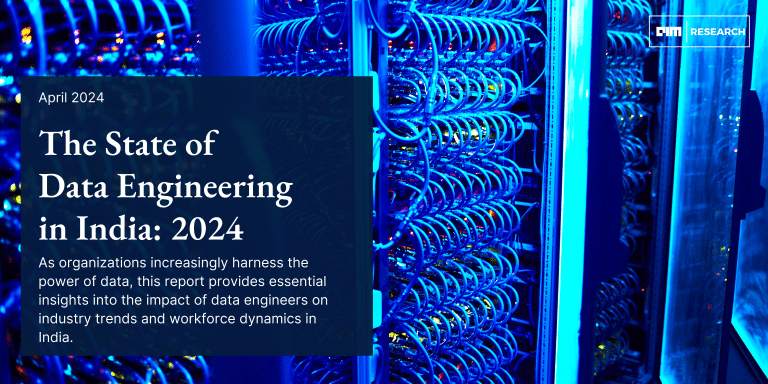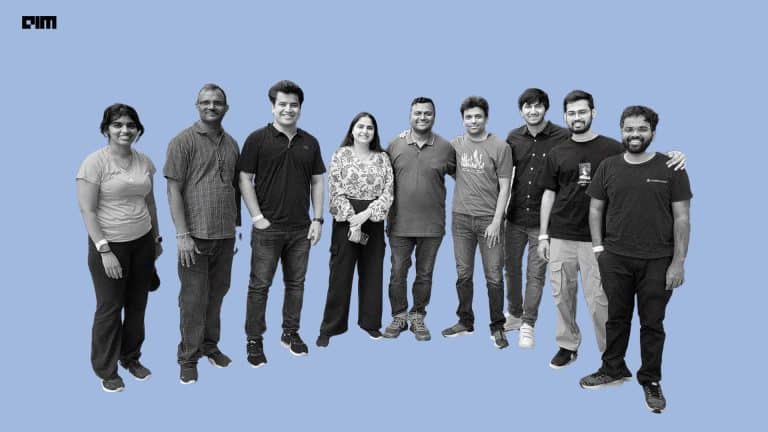Our final interview in the series of interaction for this month’s theme — Data Science MOOC’s, learning resources, analytics and data science education — was with Arun Balasubramanian of Qlik. He shared his views on how new-age technologies and domains are an integral part of the higher education curriculum, among others.
Analytics India Magazine: Do you think there is a dearth of talent owing to the fact that there are fewer courses catering to new age technologies such as analytics and AI in India? What can be the steps taken to overcome this?
Arun Balasubramanian: India does not face a talent shortage. If anything, it is currently witnessing an explosion of talent. Approximately 10-12 million fresh graduates are expected to join the Indian workforce every year. The country is also projected to become the world’s youngest by the end of this decade. More than 65% of its population will be of working age by the year 2020. Its growing talent pool is a huge asset which, if utilised to its full potential, will continue to drive India’s resurgence as a global economic superpower.
The actual challenge that the Indian economy faces is that of a dearth of skills within the workforce. A significant percentage of Indian professionals today are not equipped with the skill sets they need to cater to the ever-evolving business requirements. This massive skills gap could be caused by the slower evolution of the Indian educational ecosystem. Professional courses which follow old syllabi may be out of sync with industry requirements. Newer technologies such as AI and machine learning are still not a comprehensive part of the academic curricula, while foundational concepts such as data literacy are not given the kind of importance that they deserve in today’s data-driven age.
Addressing this major need-gap will require a concerted effort from all stakeholders, be it the government, private businesses, educational institutions, tech companies, or the workforce itself. For instance, data literacy has today become as important a qualification as reading and writing, which is why it should be made a part of the educational curriculum from an early stage. Doing so will allow modern professionals to avoid being overwhelmed by the large volumes of data that they will inevitably handle as part of their job responsibilities, and utilise this access to data to make more informed and accurate decisions.
Similarly, integrating new-age technologies and domains as an integral part of the higher education curriculum will help in the creation of a more job-ready workforce. Professionals will also need to identify the gaps within their skillsets and take proactive measures to address those gaps through reputed online certification courses offered by industry-leading players, such as Qlik.
AIM: Today companies have partnered with educational institutions and ed-tech firms to co-create courses. To what end is this helpful? What can be the other steps taken by companies to make employees analytics and data science ready?
AB: When it comes to skilling an organisation’s workforce, the context becomes extremely important. Professionals cannot utilise their skillsets optimally if they don’t have the knowledge of how to implement those skills within the context of the business that they are working for. This is where co-creating skilling programs with educational service providers are helpful for companies. Such initiatives not only help them train their employees in specialised skills but also allow end-users to understand how exactly those skills can be utilised to drive maximum business value.
Senior leaders must also look to nurture a data-driven work culture within their organisations. It isn’t just about equipping the workforce with high-end data skills. Not everybody needs to be a data scientist or a data analyst; what is important is to ensure that every employee is comfortable when it comes to interacting with, utilising, and questioning the data that they handle. This can only be achieved if employees are data literate. Promoting data literacy campaigns within the organisation is, therefore, a good place for organisations to start getting their employees ready for the data-driven world of tomorrow.
AIM: In your opinion, can popular MOOCs from Coursera, Udacity, or ed-tech startups fulfil the current learning needs?
AB: When it comes to advanced technologies such as data analytics and AI, a large section of the Indian workforce is literally starting from scratch. They are aware of the existence of these technologies but don’t often have clarity as to how they contribute to business operations. In such a scenario, foundational knowledge about these concepts becomes extremely important.
Most popular MOOCs cater to advanced learners who are already aware of the fundamental concepts, which entry-level users might not be familiar with. It is to address this need-gap with regards to data literacy that Qlik has launched free online data literacy courses under the Qlik Continuous Classroom initiative.
Through these courses, we aim to handhold professionals through their data literacy journeys and enable them to understand, analyse, and use data with confidence. The learning delivered through these courses is also product agnostic and has been designed around widely-used data, analytics, and statistical concept that can be used in any context and with any BI tool. We are confident that this latest initiative will help business leaders, professionals, and organisations embrace the next wave of business transformation in an increasingly data-centric world.
AIM: What are the challenges that analytics education space faces?
AB: Awareness about the urgent need for data literacy has to be the biggest challenge within the analytics education space. Organisations today are deploying data analytics to bolster both their day-to-day business operations and long-term strategic decision-making. And yet, despite the pivotal role that data plays in today’s business landscape, there seems to be reluctance about making data more accessible and available to all of the workforce. This is detrimental to the long-term growth of the business as well as the larger economy.
AIM: How has the analytics and data science education evolved in India over the past few years?
AB: Analytics and data science education are continuously evolving with the change in the business environment, customers’ needs, new products and a data-oriented workplace. To cater to this dynamic environment, analytics and data science education are also surging ahead with continuous improvement to suffice to the needs of professionals in the workplace and otherwise. Therefore analytics education is evolving into being less technical, more inclusive, self-service, mobile and user-friendly.


















































































